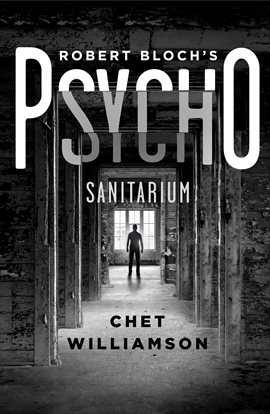Podcast Show Notes Episode 5 - Throwback 60's
Rob and Michelle discuss current books and movies set in the 1960's.
Listen to new episodes of the podcast on Anchor and Spotify!
Psycho Sanitarium by Chet Williamson

Rob and Michelle discuss current books and movies set in the 1960's.
Listen to new episodes of the podcast on Anchor and Spotify!
Psycho Sanitarium by Chet Williamson

“The algorithms that orchestrate our ads are starting to orchestrate our lives.”
-Eli Pariser, author of The Filter Bubble
When it comes to social and political issues, it’s easy to create a filter bubble on social media.
In this section of Circe we encountered quite a few figures from mythology who may or may not have been portrayed differently.
For starters, we meet Jason and Medea
Jason, who you might recognize from the old movie Jason and the Argonauts,

In this episode, your hosts discuss favorite romance reads, and also a little of the interesting history behind some of the most iconic and beloved romance novel covers. You can listen to episode three here.
Christmas at Harrington's by Melody Carlson

https://catalog.hmcpl.org/cgi-bin/koha/opac-detail.pl?biblionumber=196023
In our second episode of Two Librarians Walk Into a Shelf, your hosts, Rob and Michelle, will take you on a tour of their favorite books and movies that celebrate friendship in many ways. You can listen to episode 2 here.
The Animators

This week in our book club dedicated to a thorough look at Circe by Madeline Miller, we read the first 5 chapters and discussed both in our Goodreads Group and in a Zoom meeting on Wednesday night.
Today launches the newest endeavor to bring you library life at home – our podcast, Two Librarians Walk into a Shelf!
Each episode will bring you a selection of media, both new and old, from our library’s collections, recommended by library staff members.
Your hosts, Michelle Brightwell and Rob Freese, both from the Madison Public Library, will bring recommendations, information about the library, and entertainment, right to your ears!
To ancient people, myths were not pieces of fiction used as allegory. Myths were the way they explained human nature, natural phenomenon, and how to overcome difficulties in time of strife. In the 4th century AD, the Roman philosopher Sallustius wrote that “myths were things that never happened, but always are”. He wrote about the use of mythology in an age where Roman popular thinking was moving away from mysticism and mythology and towards philosophy and science. Sallustius believed that mythology shouldn’t be left behind as a relic of a bygone era, but should be taught to all as a foundation of what he called “common conceptions”, or the body of knowledge that all Romans should know and be able to draw from.
Hello. My name is Michelle, and if you know me at all, you know that media, digital, and information literacy is passion of mine. I would love to teach the world how to critically consume the media they choose, and to recognize bias and unfairness in what they consume. If just a small percentage of people who use social media would take the time to vet that tweet before it’s re-tweeted, or think twice before sharing a scathing image or meme on Facebook that vilifies someone they don’t agree with, we could fight back against the spread of misinformation. This is the epitome of “love your neighbor”. It is not helpful to spread conspiracy theories or random text-posts just because it’s “interesting to think about” or “food for thought”.